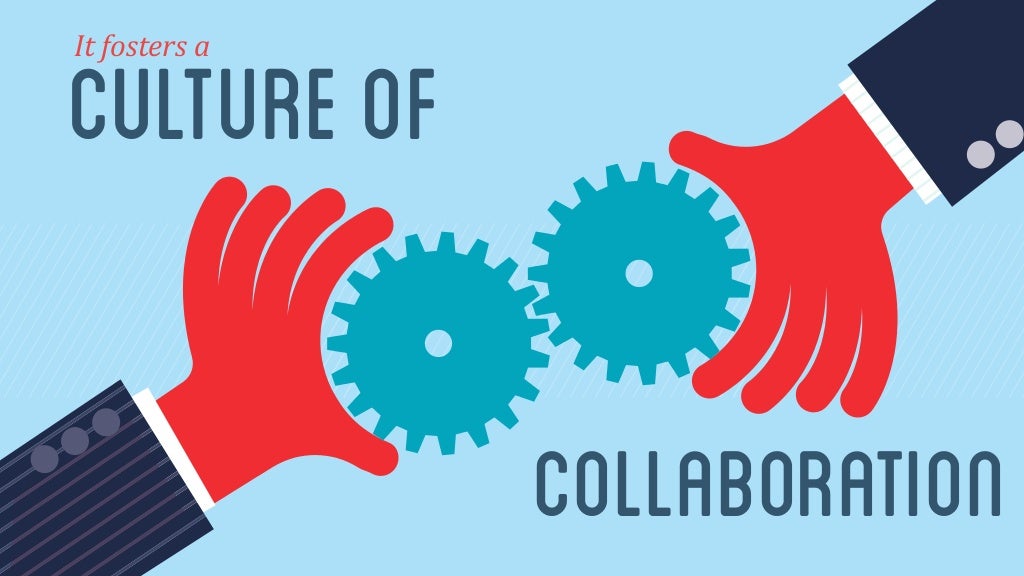The Importance Of Middle Managers: Driving Performance And Fostering Collaboration

Table of Contents
Middle Managers as the Bridge Between Leadership and Employees
Middle managers act as a vital link, connecting high-level strategic vision with the day-to-day realities of frontline teams. Their ability to effectively translate and communicate information is paramount to organizational success.
Translating Vision into Action
Middle managers are responsible for interpreting strategic goals set by upper management and translating them into actionable plans for their teams. This involves:
- Breaking down complex objectives into manageable tasks: This ensures that large-scale projects aren't overwhelming for individual contributors, promoting a sense of accomplishment as smaller goals are achieved. Effective task delegation and breakdown is a key skill for effective middle management.
- Communicating company vision and strategy clearly: They clarify the "why" behind the work, motivating teams and aligning individual efforts with overall company objectives. This requires excellent communication skills and the ability to tailor messages to different audiences.
- Ensuring alignment between individual and team goals: Middle managers connect individual roles to broader team objectives, fostering a sense of shared purpose and collective responsibility. This includes regular check-ins and progress updates to maintain alignment.
- Providing regular updates to upper management on progress: This ensures that leadership has a clear picture of team performance and can provide support as needed. Accurate and timely reporting is crucial for effective middle management.
Facilitating Communication and Feedback
Middle managers serve as a crucial communication channel, ensuring that information flows effectively in both directions – from leadership to employees and vice-versa.
- Gathering feedback from employees and relaying it to upper management: This provides invaluable insights into team morale, challenges, and opportunities for improvement. Active listening and open communication are essential here.
- Addressing employee concerns and resolving conflicts proactively: Middle managers act as mediators, resolving issues before they escalate, fostering a positive and productive work environment. Conflict resolution and mediation skills are vital for effective middle management.
- Promoting open communication and transparency within the team: They cultivate a culture of trust and open dialogue, enabling team members to share ideas and concerns freely. This creates a psychologically safe environment for innovation and problem-solving.
- Conducting regular performance reviews and providing constructive feedback: Providing regular and honest feedback is crucial for employee development and performance improvement. This requires strong interpersonal skills and the ability to give both positive and constructive criticism effectively.
Driving Team Performance and Productivity
Effective middle managers are not just supervisors; they are mentors, coaches, and catalysts for team success. They directly influence team productivity and overall organizational efficiency.
Mentoring and Development
Effective middle managers invest in the growth of their team members, recognizing that a skilled and motivated workforce is essential for achieving organizational goals.
- Providing training and development opportunities: They identify skill gaps and provide resources to help team members improve their capabilities. This may involve formal training programs, mentoring opportunities, or access to online learning resources.
- Mentoring and coaching individual team members: They offer guidance and support to help team members grow professionally and personally. Mentorship involves building relationships and providing personalized support.
- Identifying and nurturing talent within the team: They recognize and develop high-potential employees, creating a pipeline of future leaders. Talent identification and development are vital to long-term organizational success.
- Delegating tasks effectively to empower employees: They distribute work appropriately, empowering team members to take ownership and develop their skills. Effective delegation fosters autonomy and trust within the team.
Fostering a Collaborative Work Environment
Middle managers play a crucial role in building a positive and productive team culture.
- Promoting teamwork and collaboration through shared goals and initiatives: They create a sense of shared purpose and encourage team members to work together effectively.
- Encouraging open communication and feedback among team members: They foster a culture of trust and mutual respect where team members feel comfortable sharing ideas and concerns.
- Recognizing and rewarding individual and team achievements: They celebrate successes, motivating team members and reinforcing positive behaviors.
- Addressing workplace conflict constructively: They intervene in conflicts promptly and fairly, ensuring that disagreements are resolved constructively and without damaging team morale.
Monitoring and Improving Performance
Middle managers are responsible for tracking team performance against goals and implementing necessary adjustments.
- Identifying areas for improvement and implementing corrective actions: They use data and feedback to identify areas where the team can improve its performance and take steps to address any shortcomings.
- Using data and metrics to track progress and make informed decisions: They track key performance indicators (KPIs) to monitor progress and make data-driven decisions.
- Ensuring adherence to company policies and procedures: They ensure that the team adheres to all relevant company policies and procedures.
- Regularly reviewing team performance and providing feedback: They conduct regular performance reviews to provide feedback and identify areas for improvement.
The Impact of Effective Middle Management on Organizational Success
The impact of strong middle management extends far beyond individual team performance. It has a profound effect on the overall health and success of the organization.
Improved Employee Engagement and Retention
Strong middle management leads to higher employee morale, increased job satisfaction, and reduced employee turnover. A supportive manager creates a more positive work environment.
Increased Productivity and Efficiency
Well-managed teams are more productive and efficient, achieving organizational objectives faster and more effectively. Clear communication and strong leadership lead to fewer delays and increased output.
Enhanced Innovation and Creativity
A collaborative and supportive work environment, fostered by effective middle managers, stimulates innovation and creativity. Employees feel more comfortable taking risks and sharing new ideas.
Conclusion
In conclusion, the importance of middle managers in driving performance and fostering collaboration cannot be overstated. Their role as a bridge between leadership and employees, their focus on team development, and their commitment to creating a positive work environment are all crucial for organizational success. By investing in the development of strong middle management, companies can unlock significant improvements in productivity, employee engagement, and overall performance. Strengthen your organization by recognizing and developing the critical role of effective middle management—it's an investment that will yield significant returns. Invest in your middle managers today and see the positive impact on your entire organization.

Featured Posts
-
 Punjab Governments Initiative Technical Training For Transgender Community
May 10, 2025
Punjab Governments Initiative Technical Training For Transgender Community
May 10, 2025 -
 London Outing Harry Styles And His 70s Moustache
May 10, 2025
London Outing Harry Styles And His 70s Moustache
May 10, 2025 -
 Singer Benson Boone Denies Copying Harry Styles
May 10, 2025
Singer Benson Boone Denies Copying Harry Styles
May 10, 2025 -
 Palantir Technologies Stock Should You Invest Before May 5th Expert Analysis
May 10, 2025
Palantir Technologies Stock Should You Invest Before May 5th Expert Analysis
May 10, 2025 -
 The Jeanine Pirro Story An Examination Of Her Fox News Impact
May 10, 2025
The Jeanine Pirro Story An Examination Of Her Fox News Impact
May 10, 2025
